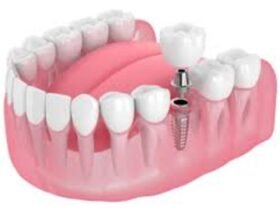As couples worldwide face fertility challenges, the quest for alternative treatments that offer supportive and non-invasive options is on the rise. One such treatment is Chinese medicine, a time-honoured approach that is gaining popularity in the realm of reproductive health. This article delves into how Chinese medicine for fertility can complement modern medical practices and offer couples a holistic pathway to potentially enhance their fertility.
Understanding the Principles of Chinese Medicine
Chinese medicine is rooted in a philosophy that considers the body a complex network of interconnected energies and organ systems. Unlike Western medicine, which often focuses on treating specific symptoms or conditions, Chinese medicine emphasises balance, harmony, and the flow of ‘Qi’ (vital energy). It approaches health and illness from a holistic perspective, striving to address imbalances that can lead to disease or dysfunction.
A critical tenet of Chinese medicine is the Yin and Yang theory, which represents the dual and interdependent forces present in all aspects of life. When these forces are in equilibrium, the body is in a state of health. However, when there is a disparity, it may lead to various conditions, including fertility issues. Chinese medicine aims to restore this balance through various techniques, potentially enhancing reproductive health.
Chinese Medicine Strategies for Boosting Fertility
Chinese medicine utilises a multifaceted approach to enhance fertility, including herbal remedies, acupuncture, dietary adjustments, and lifestyle recommendations. These treatments are tailored to the individual’s unique constitution and the specific imbalances affecting their fertility.
One of the primary methods employed in Chinese medicine for fertility is acupuncture. This involves the insertion of fine needles into specific points on the body to stimulate Qi and promote balance. Acupuncture can improve blood flow to reproductive organs, regulate hormones, and reduce stress, which may have a positive effect on fertility.
Herbs play a vital role in Chinese medicine, with different combinations prescribed to nurture the reproductive system, adjust hormonal imbalances, and support different phases of the menstrual cycle. The precise herbal formula is customised to the patient’s needs, making it a very personalised treatment.
Dietary adjustments in Chinese medicine are also significant. Certain foods are believed to strengthen reproductive energy, support the uterine lining, and improve egg quality. A practitioner may recommend specific dietary changes based on the individual’s constitution and the yin-yang balance within their body.
Integrating Chinese Medicine with Western Fertility Treatments
While Chinese medicine can be used as a stand-alone treatment for fertility enhancement, it can also be integrated with Western fertility treatments such as in-vitro fertilisation (IVF) and intrauterine insemination (IUI). There is growing evidence that acupuncture, in particular, can improve the success rates of these treatments by helping to reduce stress, enhance blood flow, and improve the endometrial lining’s receptivity.
Many fertility clinics now recognise the potential benefits of Chinese medicine and offer complementary services or collaborate with Chinese medicine practitioners. This integration allows couples to benefit from the best of both worlds – the advanced technology of Western medicine and the holistic, individualised approach of Chinese medicine.
Couples considering Chinese medicine as part of their fertility journey should consult with a licensed and experienced practitioner who can provide personalised care. It’s essential to seek treatment from professionals who have a deep understanding of both Chinese and Western medical paradigms and who can collaborate with other healthcare providers.
Scientific Research and Chinese Medicine for Fertility
The effectiveness of Chinese medicine for fertility enhancement is supported by research, though more large-scale, rigorous studies are needed to solidify its role in reproductive health. Some studies have shown that acupuncture, in combination with herbs, can influence hormone levels and menstrual cycle regularity, factors essential to fertility.
Another area of research indicates that stress reduction through acupuncture and herbal treatments can improve fertility outcomes. Since stress is known to affect hormonal balance and ovulation, the stress-relieving aspects of Chinese medicine may play a crucial role in its success.
Despite promising research, it is important for couples to maintain realistic expectations. Chinese medicine is not a panacea, and fertility outcomes vary from person to person. However, many find that even if pregnancy is not achieved, the overall improvements in health and well-being are beneficial.
Finding a Qualified Chinese Medicine Practitioner
For those interested in exploring Chinese medicine to aid fertility, it is vital to seek a qualified and experienced practitioner. A reputable practitioner will conduct a comprehensive assessment and offer a treatment plan tailored to the individual’s needs. They will also monitor progress and adjust treatments as required.
Prospective patients should look for practitioners who have specialised training in reproductive health and who can provide evidence of their qualifications and experience. Finding a practitioner who communicates effectively and provides a supportive environment is also necessary for a positive experience.
Before starting any new treatment, it is essential to consult with your primary healthcare provider, especially if you are already undergoing fertility treatments. An integrated approach, with transparent communication between your healthcare team, will ensure the best possible care.
Conclusion
Chinese medicine offers a holistic and time-tested approach to improving fertility that has helped countless individuals and couples throughout history. By focusing on the root causes of imbalance and using natural interventions like acupuncture and herbs, Chinese medicine for fertility continues to be a relevant and valuable option for those seeking to enhance their reproductive health.
While there is no guarantee of success, the holistic benefits that can accompany treatment are often worthwhile, improving not only the chances of conception but also overall health and well-being. As the bridge between age-old traditions and modern medical advancements continues to strengthen, Chinese medicine remains a significant and promising complement in the journey to fertility.
For More Information Visit Walkermagazine

















Leave a Reply